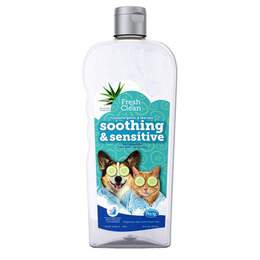

Click on image to open expanded view
Item No.
52135
Product Description
Thyro-Tabs® Canine are a prescription medication. They are formulated for use in dogs with hypothyroidism (underactive thyroid), and they work as replacement therapy.
Who is VetOne Thyro-Tabs Canine, 120 ct for?
For dogs with hypothyroidism.
Why use VetOne Thyro-Tabs Canine, 120 ct?
Thyro-Tabs® Canine are used for dogs with hypothyroidism. This condition, otherwise known as underactive thyroid disease, occurs when a dog's thyroid gland fails to make a sufficient amount of thyroid hormone. When this medication is used, it works as replacement therapy to balance the thyroid. With balanced thyroid hormone, dogs experience an improvement in their mental and physical health.
How does VetOne Thyro-Tabs Canine, 120 ct work?
This medication contains T4, which is synthetic tetraiodothyronine sodium salt. The synthetic form of this ingredient is an identical replica of the hormone produced naturally by the thyroid gland of a dog. For this reason, Thyro-Tabs® Canine are an excellent replacement therapy solution for dogs suffering from hypothyroidism.
Manufacturer:
VetOne
Active Ingredients(s):
Tetraiodothyronine Sodium Salt (Levothyroxine Sodium, USP)
How is VetOne Thyro-Tabs Canine, 120 ct sold?
Sold in a color-coded bottle of 120 tablets in 9 strengths, ranging from 0.1 mg to 1 mg.
What are the side effects of VetOne Thyro-Tabs Canine, 120 ct?
Possible adverse reactions include:
- Collapse
- Vomiting
- Polyuria
- Anorexia
- Pruritus
- Seborrhea
- Dermatitis
- Allergic Reactions with Symptoms Such As Pruritus, Hives, Rash, and/or Facial Swelling
- High or Low Concentrations of Serum Total Thyroxine
- Lethargy
- Leukocytosis
- Diarrhea
- Elevated Liver Enzymes (ALP, ALT, or AST), which usually resolves without veterinary intervention
- Tachypnea
- Elevated Hematocrit and Red Blood Cell Counts
- Swimmer's Ear (Otitis Externa)
- Polydipsia
- Hyperactivity
What special precautions are there?
- Never administer to a dog with thyrotoxicosis or uncontrolled adrenal insufficiency.
- This medication has not been studied for safe use in breeding, lactating, or pregnant dogs.
- If accidental ingestion occurs, treatment should take place immediately. Keep the product label on hand when seeking treatment.
- After excess in-utero thyroid hormone exposure, the offspring of humans and rodents have developed hypothalamic-pituitary-thyroid axis dysfunction and defects in the morphological thyroid gland.
- Dogs with cardiac illness and hypothyroidism should be monitored vigilantly to ensure that the correct dosage is established. Veterinarians often find it prudent to adjust these dogs' dosages of cardiac medication or levothyroxine sodium, depending on the dog's clinical response.
- Keep out of reach of children.
- Thoroughly wash your hands after handling.
What to do if overdose?
If overdose is suspected, treatment should be obtained at the nearest emergency vet hospital.
How can I store VetOne Thyro-Tabs Canine, 120 ct?
Store at controlled room temperature away from light and moisture. Excursions may take place from temperatures of 9° to 86°F (15° to 30°C).
Helpful Tips:
Clinical signs in dogs with hypothyroidism commonly include:
- Weight Gain
- Bradycardia
- Scaling
- Lethargy
- Alopecia
- Hyperpigmentation
- Hypercholesterolemia
- Seborrhea
Overview
- The usual initial recommended dose is 0.1 mg of Thyro-Tabs® Canine for each 10 pounds of body weight. This full dosage may be given every 24 hours, or a half dose can be administered every 12 hours.
- Veterinarians should closely monitor the total thyroxine (T4) concentration of the dog and make necessary adjustments to dosage in an effort to establish an appropriate maintenance dose.
- You may administer Thyro-Tabs® without or with food.
- Always administer according to your veterinarian's directions.
Main Ingredients
Tetraiodothyronine Sodium Salt (Levothyroxine Sodium, USP)








